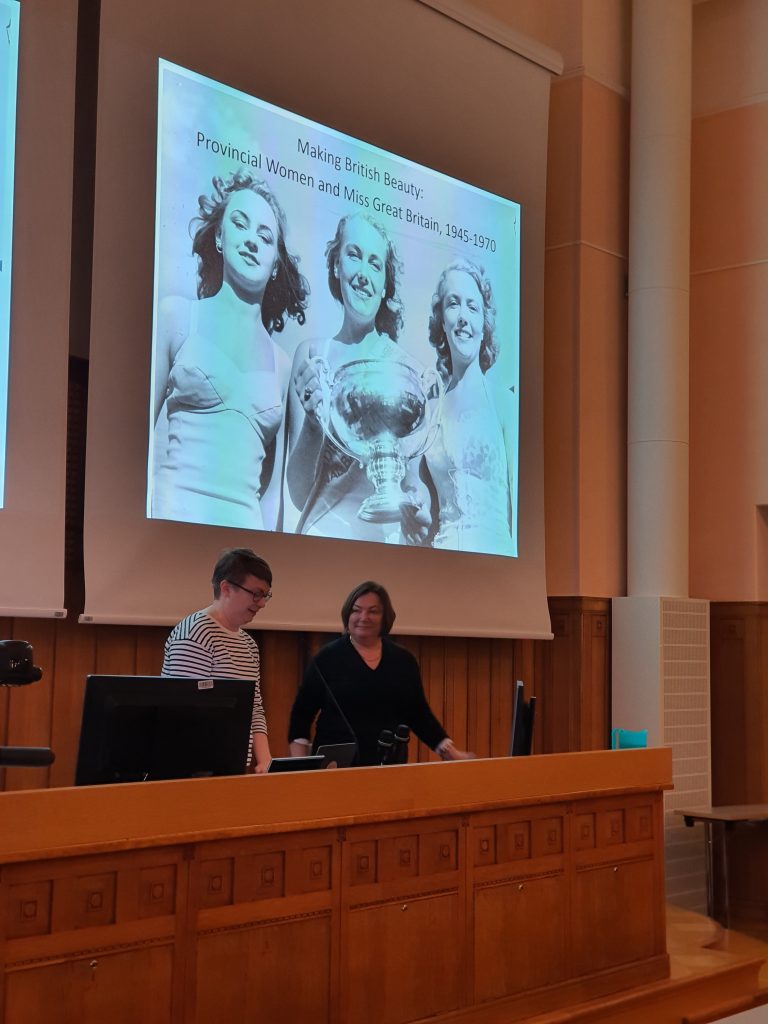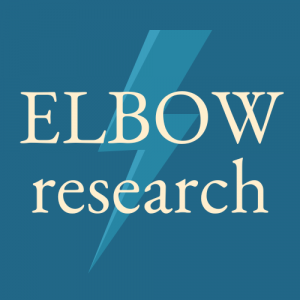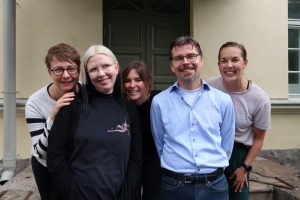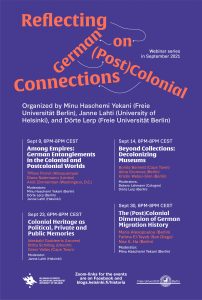
Professori Amanda Vickery aloitteemassa Akateemikko Eino Jutikkala -luentoaan. Apulaisprofessori Soile Ylivuori, viime vuoden luennoitsija, esittelee vierailijan.
Helsingin yliopiston historian oppiaineen vuosittainen Akateemikko Eino Jutikkala -luento muistuttaa Akateemikko Eino Jutikkalan (1907–2006) ja yleisemminkin aiempien historioitsijasukupolvien laajasta elämäntyöstä ja tuoda esiin nykyisten, eri uravaiheissa olevien tutkijoiden työtä historian parissa. Puhujaksi pyydetään vuoroin nuori väitellyt tutkija, kansainvälinen tutkija ja varttuneempi tutkija.
Tämänvuotinen, neljäs Akateemikko Eino Jutikkala -luento järjestetään pe 24.11.2023 klo 14-17. Tilaisuudessa puhujana on Prof. Amanda Vickery, Queen Mary University of London. Paikkana on Kielikeskuksen juhlasali. Tilaisuuden alussa on kahvitarjoilu.
https://tilavaraus.helsinki.fi/fi/keskusta/kielikeskus-fabianinkatu-26/kielikeskus-juhlasali
Amanda Vickery on varhaismodernin historian professori, jonka tutkimusaiheet ulottuvat myös moderniin aikaan. Hän on tutkinut laajasti sukupuolen ja perheen, sanojen ja esineiden histiraa. Hänen uusin hankkeensa on ”What Women Wanted. Women’s Hopes in Britain, 1945-c.1970”.
Ohjelma
13.45 – 14.15 Kahvi- ja pullatarjoilu / Refreshments
14.15 – 14.30 Prof. Laura Kolbe: Vuosikatsaus, gradupalkinnot / State of the Department, Thesis Awards
n. 14.30 Prof. Amanda Vickery: ”Making British Beauty: Provincial Women and Miss Great Britain, 1945-1970”
n. 16.30 – 17.00 Tilaisuus päättyy / Closing words
Esityksen otsikko ja tiivistelmä:
”Making British Beauty: Provincial Women and Miss Great Britain, 1945-1970”
This lecture examines the Miss Great Britain beauty pageant staged at Morecambe in Lancashire between 1945 and 1970. A beauty contest may seem a retrograde event, to be reviled for vintage sexism, or dismissed for triviality. The Miss Great Britain contest was a highly visible performance of ideal femininity, hall-marking that which was desirable and conventional for post-war women. It was not a bizarre spectacle remote from ordinary lives. Before the rise of television and the package holiday, the seaside beauty contest was interwoven in the leisure and parochial culture of the working and lower middle classes, ‘as big a part of British summers as ice creams and donkey rides’. Rather than simply sit in judgment on past sexisms, this lecture recreates a lost mentality. Miss Great Britain was run by the Publicity Department of Morecambe Borough Council whose papers are now in the Lancashire Archives. Tens of thousands of photographs and application forms document the bodies, origins and occupations of every single entrant for 25 years. They have been barely used by historians, but they are a portal to a vanished world. Miss Great Britain sustained highly specific conventions of femininity: white, Anglo-Saxon and ladylike in the 1940s and 50s, graduating to white, Anglo-Saxon dolly birds in the 1960s and 70s. Sexism was woven into the beauty contest, but so was the possibility that a nice girl might exhibit an appropriately disciplined body without shame. The contestants flaunted their figures and self-belief, in a manner unthinkable for their grandmothers.
——————————-
Tietoa aiempien vuosien Akateemikko Eino Jutikkala -luennoista ja gradupalkinnoista: https://blogs.helsinki.fi/historia/tag/eino-jutikkala-luento/



